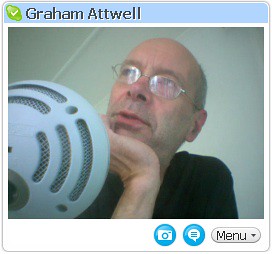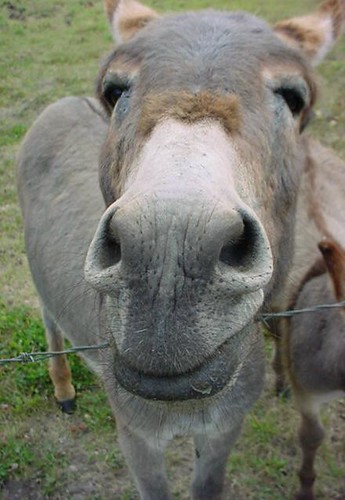Yesterday this link arrived at my twitter channel via @ewanmcintosh. (isn’t twitter fab? 😉 ) Another great talk by Sir Ken Robinson. I didn’t expect it to be less than true inspiration after the last talk I had watched from him as part of the TED conference.
Yesterday evening, I finally was able to play the talk on my laptop. It was not only inspiring, it was extremely encouraging and thought provoking. The main message was, in my opinion, not to change the educational system, but rather to come up with a new one that will actually meet this age’s essence: individuality and diversity; customization and creativity.
Sir Robinson speaks about us aiming at the wrong challenge. It is not how we can make something better, as it is not about constantly reforming a system that was designed for a different age; It is about forming a new, or rather, new ways of helping us discover our natural talents. Our “geniuses” are being oppressed by education – isn’t it a pure antithesis of what we think education should be granting us?
And this brilliant speaker goes on with a brilliant thought I truly believe in: people do their best when they do what they love… when they are in their element. Isn’t it so true? Does it happen to you too? It does to me and it has always been so in school, at work, in everything I do. For instance, I hated when I had to memorize things I didn’t understand. My head would spin just to think about the electrons, atoms and molecules that, according to the teacher, were there up the air but whose point I always missed to see …so abstract it was, and so little skill the teachers had to explain it in a way it would make sense to ME. And as apparently it made sense to the others, I felt I should just shut up and set my mind to spend boring weekends at my desk trying to memorize words and sentences I couldn’t make out, but which would grant me a passing mark. On the other hand, I liked languages. I tried to understand the grammatical structured, examine the exceptions, observe how people expressed themselves, analyze how language is cultural and experience related, how it also influences the way we think, etc. I was always fascinated by it. Learning languages is an ongoing challenge. And I always enjoyedit. As I did enjoy computer classes too. I therefore relate truly to the thought that when people discover what they can do, they become someone else, they transform, they bloom, they exceed what they thought to be their limits.
Trying to meet the future with ideas of the past is not the answer. We have to look at nature and learn from it. We need for once and for all to move from the industrial to an organic paradigm that will help provide the appropriate conditions to seed the right learning environments. Environments in which each learner will be valued and able to develop his/her genius in a creative way. And then I loved the way Sir Ken Robinson describes creativity: Original ideas with added value.
And he finishes with this amazing quote from Benjamin Franklin “All mankind is divided into three classes: those that are immovable, those that are movable, and those that move.”
So, Let’s MOVE people! It’s about time.

 Been travelling for last week – hence few entries in this blog. Amongst a run of meetings I went to Aberystwth for my stepdaughter Arddun’s graduation ceremony. I can’t say I was looking forward to it and indeed it was every bit as boring as I expected. Don’t get me wrong – I am all in favour of celebrating achievement and Arddun worked hard for her degree and deserved her day out – well done love.
Been travelling for last week – hence few entries in this blog. Amongst a run of meetings I went to Aberystwth for my stepdaughter Arddun’s graduation ceremony. I can’t say I was looking forward to it and indeed it was every bit as boring as I expected. Don’t get me wrong – I am all in favour of celebrating achievement and Arddun worked hard for her degree and deserved her day out – well done love.
